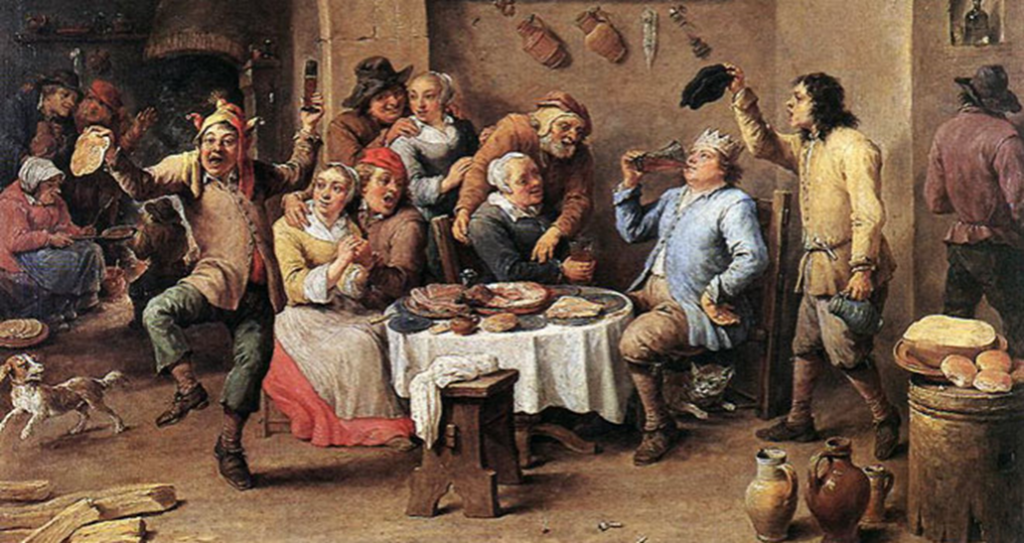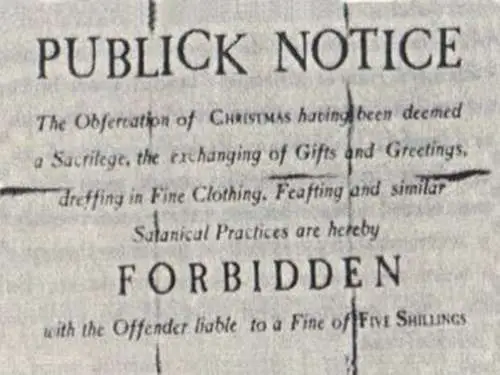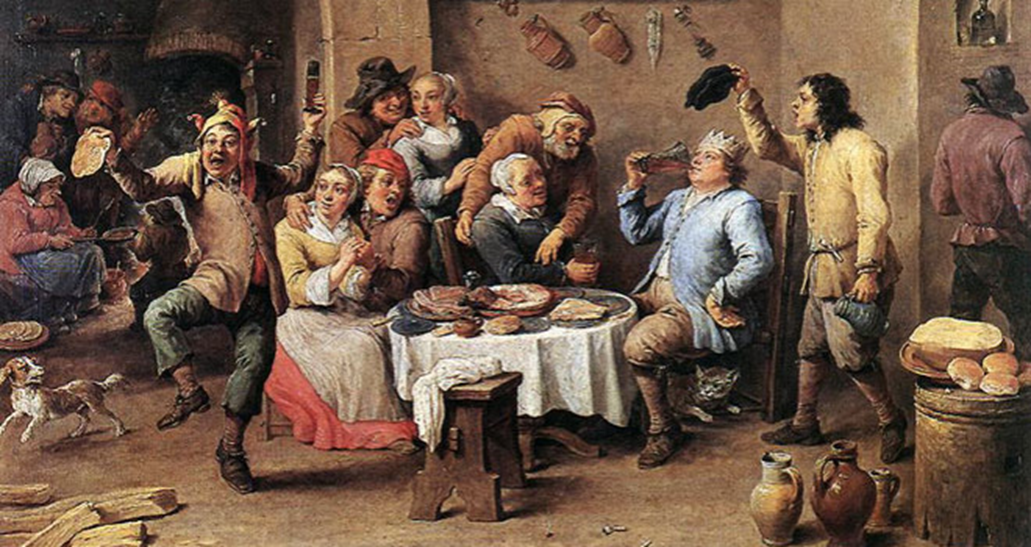The 17th and 18th century colonial Puritans and Pilgrims of New England, such as those from Simsbury, CT, were very pious, so Christmas was just another day to devote to God. Their ministers rejected celebrating the holiday due to its pagan roots from the Roman winter festival of Saturnalia and the Norse festival of Yule.*
At this same time in England and New England, Anglicans celebrated Christmas for 12 days starting December 25 and it consisted of raucous celebrations involving drunkenness, gaming, gambling, and masquerade balls full of music and dancing.*
“One of the more colorful New England colonial Christmas traditions was mumming, in which men dressed like women (and vice versa) or simply disguised themselves in a range of costumes. Mumming could be as innocent as street theater or as bawdy as a loosely disguised roving orgy.”**
The 12th day of Christmas, on January 6th, was called “Twelfth Day” or the Epiphany celebration. This was a great excuse for another celebration with parties and perhaps more mumming. May it have included : “ Twelve drummers drumming, Eleven pipers piping, Ten lords a-leaping, Nine ladies dancing …”?

“Twelfth Night or The King Drinks” painted by David Teniers the Younger in 1634-40.
The Puritans and Puritan separatists (Pilgrims) sought to purify the Church of England. This type of rowdy and immoral holiday celebration was seen as divergent from the focus on God’s work. Therefore, the Connecticut Colony, along with Massachusetts Colony, outlawed celebrating Christmas in 1659 and imposed a 5 shilling fine for observing it. **

Although this law banning Christmas celebrations was revoked in 1681, many Puritan colonists did not approve of this action and remained opposed. However, by the 1800s, this sentiment on Christmas observances was waning. Puritans were feeling attracted to many of the Christmas traditions already established in colonial America by Episcopalians (Anglicans), Roman Catholics and other Protestants. This attitude was particularly advanced in 1822 with the publishing of the poem A Visit from St. Nicholas by Clement Clarke Moore :
“ ‘Twas the night before Christmas, when all through the house, Not a creature was stirring, not even a mouse; The stockings were hung by the chimney with care, In hopes that St. Nicholas soon would be there … “
Sometime around the end of the Civil War, the Puritans relented to a more restrained Christmas observance. So fear not, celebrate Christmas … and as Tiny Tim observed “God bless us, everyone.”***
by Tom Yanik
*Pruitt, Sarah. “How Christmas Was Celebrated in the 13 Colonies” www.history.com/news/christmas-13-colonies-puritans. Updated October 5, 2023. Accessed 12/24/23
** We Won’t Go Until We Get Some: New England Colonial Christmas Traditions: One tradition was disagreeing about how to celebrate Christmas. www.newenglandhistoricalsociety.com/wont-go-get-new-england-colonial-christmas-traditions. Accessed 12/24/23
*** from Charles Dicken’s novella A Christmas Carol. In Prose. Being a Ghost Story of Christmas originally published: December 19, 1843





